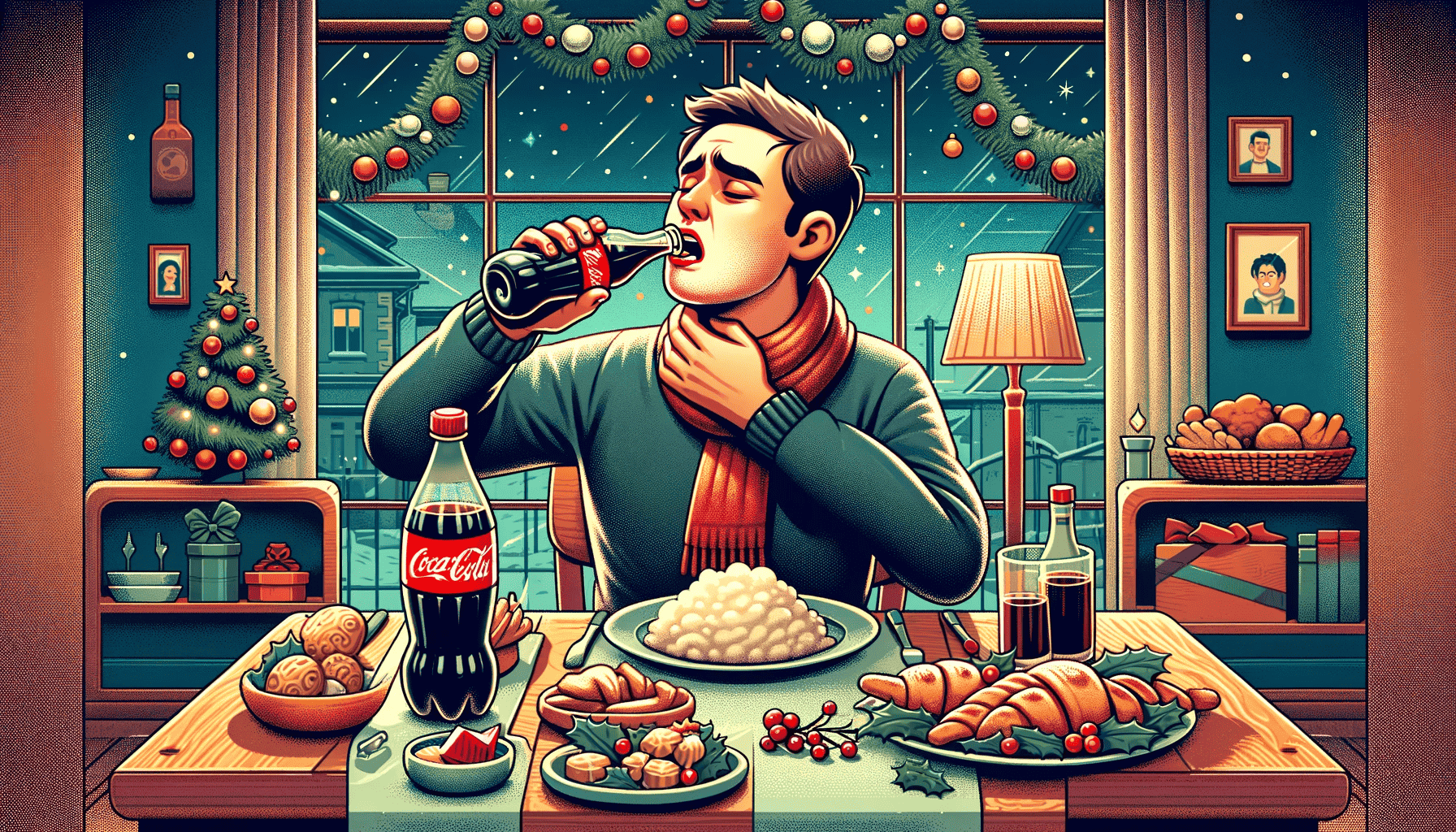
This Christmas, let’s put a popular myth to rest: Cola can’t dislodge throat blockages. This was the conclusion of a recent study conducted by researchers at Amsterdam University Medical Centers (UMC), a collective of two teaching hospitals in the Dutch capital.
Prompted by online rumors and anecdotes, including newspaper stories about paramedics using Coca-Cola to save people’s lives, emergency physician Elise Tiebie and gastroenterology professor Arjan Bredenoord investigated cola’s supposed throat-clearing abilities.
“I’ve even heard doctors recommending it,” says Bredenoord, who is the Professor of Gastroenterology at Amsterdam UMC and lead author of the new study.
Food getting lodged in the esophagus is not just uncomfortable; it can be dangerous. This usually happens due to a narrowing caused by scars from past inflammation or a tumor. Recognizing the potential hazards, Bredenoord emphasizes the need for proper treatment.
“This can be really dangerous, so it’s important that people get the correct treatment. That’s why we wanted to check if this works,” he adds.
Bredenoord’s team, spread across five Dutch hospitals, embarked on a mission to evaluate cola’s effectiveness in such scenarios. Involving 51 patients, the study observed the outcomes for those given cola while awaiting endoscopy compared to those who weren’t.
The results were clear: cola made no difference. Improvement was noted in 61% of cases in both groups, indicating that often, the obstruction resolves itself, or an endoscopy is needed.
On the bright side, cola did not pose any additional risks or complications, the researchers reported in the BMJ.
“There was no improvement when using cola to loosen stuck food in the esophagus, often the food dislodged on its own after a while and otherwise, we performed an endoscopy. Hopefully, this put this myth to rest,” concludes Bredenoord.
However, this may not necessarily be the final word on the matter. In 2019, other researchers, incidentally also from the Netherlands, reached the opposite conclusion. This study, which involved 19 patients who went to the emergency department with meat stuck in their throats, found that “cola successfully resolved 59% of complete oesophageal obstructions.”
As many people are set to overindulge over the upcoming Christmas holiday, an uptick in blocked esophagus is inevitable. The safest course of action seems to go straight to the hospital rather than downing a carbonated beverage on your own.
Here’s how to avoid food impaction during the Christmas season:
- Chew Thoroughly: Take your time to chew food completely before swallowing. This helps break down food into smaller, more manageable pieces.
- Eat Slowly: Avoid rushing through meals. Eating slowly can prevent accidentally swallowing large pieces of food.
- Avoid Talking While Eating: Try not to talk while chewing. This reduces the risk of food going down the wrong way.
- Cut Food into Small Pieces: Especially important for meats like turkey and ham. Smaller pieces are easier to chew and swallow.
- Stay Hydrated: Drink plenty of water during meals. This helps in keeping the throat moist and facilitates easier swallowing.
- Limit Alcohol Consumption: Excessive alcohol can dull the throat’s reflexes, increasing the risk of food impaction.
- Avoid Dry Foods: Foods that are overly dry or tough can be harder to swallow. Opt for moist and tender options.
- Sit Upright While Eating: Maintain an upright posture during meals. It aids in the smooth passage of food down the throat.
- Be Mindful of Hard Candies and Nuts: These can easily become lodged in the throat. Chew them thoroughly or avoid them if you’re prone to swallowing difficulties.
- Know Your Limits: If you have a history of swallowing difficulties, be extra cautious with food textures and sizes.
- Supervise Children: Keep an eye on children, ensuring they chew their food well and don’t eat too quickly.






